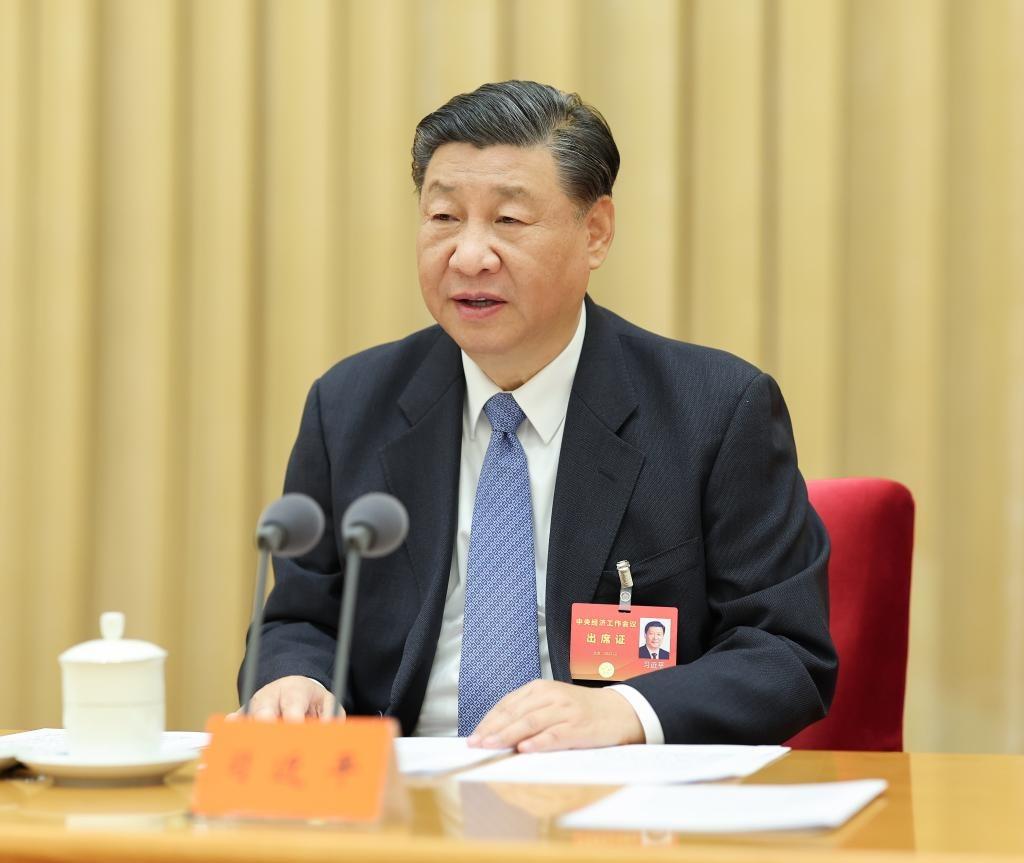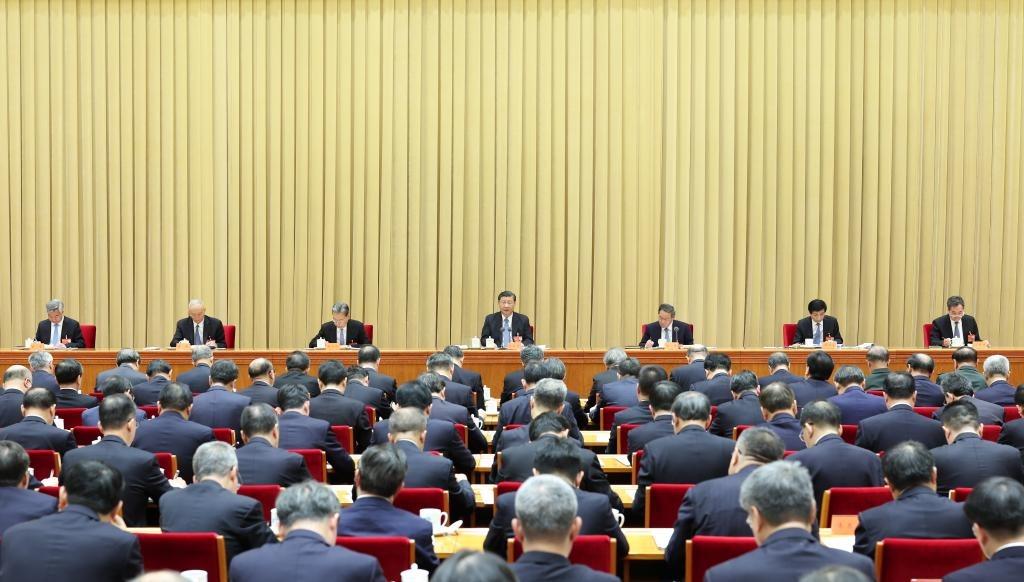 Xi Jinping, general secretary of the Communist Party of China Central Committee, Chinese president and chairman of the Central Military Commission, delivers a speech at the annual Central Economic Work Conference in Beijing, China, Dec 12, 2023. (PHOTO / XINHUA)
Xi Jinping, general secretary of the Communist Party of China Central Committee, Chinese president and chairman of the Central Military Commission, delivers a speech at the annual Central Economic Work Conference in Beijing, China, Dec 12, 2023. (PHOTO / XINHUA)
China is expected to leverage a slew of policy tools to stabilize and promote economic growth in 2024, including measures to expand domestic consumption and mitigate risks in the real estate sector, in local government debts and in small and medium-sized financial institutions, according to the annual Central Economic Work Conference.
While delivering an important speech at the two-day, tone-setting conference, which concluded on Tuesday, Xi Jinping, general secretary of the Communist Party of China Central Committee, reviewed the country's economic work in 2023, analyzed the current economic situation and arranged next year's economic work.
ALSO READ: CPC leadership holds meeting on economic work, discipline
Against a backdrop of increasing economic headwinds, the meeting sent a clear message about the Chinese central leadership's intention to facilitate an enabling policy environment that can support the stabilization of the Chinese economy.
It was noted at the meeting that China's economy has achieved recovery, with solid progress made in high-quality development in 2023, but the nation still has to overcome some difficulties and challenges to further revive the economy.
The meeting's participants underlined the need to promote large-scale equipment renewal and trade-in programs for consumer goods, leverage the multiplier effect of government investment and implement new mechanisms for government and social capital cooperation
Overall, favorable conditions outweigh unfavorable factors in China's development, and the fundamental trend of economic recovery with a long-term positive outlook has not changed, a statement released after the conference said, urging stronger confidence.
The meeting's participants demanded that economic stability be made a top priority and steady progress be pursued while ensuring economic stability for the next year.
READ MORE: IMF reiterates upward revision of China's growth forecast
Countercyclical and cross-cyclical adjustment of macroeconomic policies will be strengthened, and a proactive fiscal policy and prudent monetary policy will continue to be implemented, the statement said. Efforts will also be made to intensify innovation of policy tools and coordinate various policies to form synergy for high-quality development.
The proactive fiscal policy should be appropriately intensified and improved in quality and efficiency, the statement said.
It was stressed at the meeting that the prudent monetary policy should be flexible, appropriate, targeted and effective, while ensuring reasonable and sufficient liquidity. The scale of social financing and money supply should be in line with expected economic growth and price levels.
Monetary policy tools should be used to guide financial institutions to increase support for technological innovation, green transformation, inclusive small and micro enterprises, and the digital economy, the statement said.
READ MORE: China capable of defusing debt risks, experts say
The meeting's participants underlined the need to enhance the consistency of macroeconomic policy and strengthen the coordination of fiscal, monetary, employment, industrial, scientific and technological, and environmental protection policies.
 Xi Jinping, general secretary of the Communist Party of China Central Committee, Chinese president and chairman of the Central Military Commission, delivers a speech at the annual Central Economic Work Conference in Beijing, China, Dec 12, 2023. (PHOTO / XINHUA)
Xi Jinping, general secretary of the Communist Party of China Central Committee, Chinese president and chairman of the Central Military Commission, delivers a speech at the annual Central Economic Work Conference in Beijing, China, Dec 12, 2023. (PHOTO / XINHUA)
Key priorities for next year's economic agenda include promoting the construction of a modern industrial system through technological innovation, expanding domestic consumption, deepening reforms in key areas, promoting high-level opening-up, and preventing and defusing major risks.
It is necessary to implement the high-quality development action plan for key industrial chains in the manufacturing industry to improve the resilience and security of industrial and supply chains, according to the meeting.
The meeting's participants also called for vigorously promoting the new type of industrialization, developing the digital economy, accelerating the development of artificial intelligence, fostering strategic emerging industries, and blazing trails for future industries.
ALSO READ: China mulls law for financial risk control
It was stressed at the meeting that efforts should be made to stimulate potential consumption, expand effective investment, and form a virtuous cycle between consumption and investment.
The meeting's participants underlined the need to promote large-scale equipment renewal and trade-in programs for consumer goods, leverage the multiplier effect of government investment, implement new mechanisms for government and social capital cooperation, and encourage social capital to participate in the construction of new types of infrastructure.
A series of measures should be implemented to accelerate the construction of a unified national market and effectively reduce overall logistics costs, they said, adding that a new round of fiscal and tax system reform should be outlined, and financial system reform should be implemented.
ALSO READ: China's expanding logistics sector indicates steady economy
In terms of expanding high-level opening-up, the meeting's participants said that efforts should be made to cultivate new growth drivers of foreign trade, consolidate the fundamentals of foreign trade and foreign investment, use high-standard international economic and trade rules as a benchmark, and improve the business environment. The Belt and Road Initiative will be further promoted, they said.
The participants also called for solid efforts in work related to agriculture, rural areas and farmers, and urged promoting the integration of urban and rural areas, the coordinated development of different regions, and ecological conservation and green and low-carbon development.


